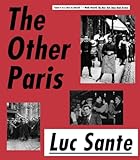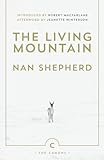My reading took me to many different places this year, but it began and ended in France.
 Luc Sante’s The Other Paris. The more our major cities shift from places of community and society towards havens for whimsy and capital, the more I want to live in Sante’s cities. He’s a historian of anarchy and disorder, a writer whose prose shines when it’s exploring the dirtiest of places. The Paris that explodes with life on these pages is neither chic nor intellectual — it’s scrappy, ornery, and dangerous, but it’s also a place of intimacy and wild possibility. That’s also a fine description of his writing.
Luc Sante’s The Other Paris. The more our major cities shift from places of community and society towards havens for whimsy and capital, the more I want to live in Sante’s cities. He’s a historian of anarchy and disorder, a writer whose prose shines when it’s exploring the dirtiest of places. The Paris that explodes with life on these pages is neither chic nor intellectual — it’s scrappy, ornery, and dangerous, but it’s also a place of intimacy and wild possibility. That’s also a fine description of his writing.
Gayl Jones’s Corregidora. The story of Ursa Corregidora, a hard-living Kentucky blues singer, went directly into my central nervous system. Jones is a conjurer, and her techniques include stream-of-consciousness, collective memory, and some of the best dialogue I’ve read in ages. The themes of this book — how sexual, racial, and historical trauma are passed down in ways we keep reliving — have only gotten more relevant since it was published in 1975.
 Nan Shepherd’s The Living Mountain. There are so few “extreme adventure” books written by women and people of color that I always devour any I can find. Shepherd was devoted to climbing the Cairngorms, a mountain range in Scotland, but the point of this short, bracing novel is not the summit — it’s the climb at different times of the year and of life. Shepherd strikes a wonderful balance between the scientific details (Arctic-era plants) and the spiritual, sensual joys of spending one’s life engaged with the natural world.
Nan Shepherd’s The Living Mountain. There are so few “extreme adventure” books written by women and people of color that I always devour any I can find. Shepherd was devoted to climbing the Cairngorms, a mountain range in Scotland, but the point of this short, bracing novel is not the summit — it’s the climb at different times of the year and of life. Shepherd strikes a wonderful balance between the scientific details (Arctic-era plants) and the spiritual, sensual joys of spending one’s life engaged with the natural world.
Michael S. Harper’s Nightmare Begins Responsibility. Harper was a beloved teacher, poet, and friend who passed away this year. I reread his work with great sadness at his passing and wonder at his existence:
you are your last breath;
you are your first scream:
you are; you are.
(From “Primal Therapy”)
 Carmen Boullosa’s Texas: The Great Theft. They say history is written by the conquerors, but Boullosa has other ideas. Texas reconsiders the U.S. annexation of Texas through the eyes of the conquered — a sprawling cast that includes Mexican elites, peasants of all nationalities, drunks, Austrian immigrants, and runaway slaves. The story is told as a series of impressions, the way gossip passes through a small town. The result is something bizarre, comedic, fantastical, and unsettling — kind of how history feels when you’re forced to live through it.
Carmen Boullosa’s Texas: The Great Theft. They say history is written by the conquerors, but Boullosa has other ideas. Texas reconsiders the U.S. annexation of Texas through the eyes of the conquered — a sprawling cast that includes Mexican elites, peasants of all nationalities, drunks, Austrian immigrants, and runaway slaves. The story is told as a series of impressions, the way gossip passes through a small town. The result is something bizarre, comedic, fantastical, and unsettling — kind of how history feels when you’re forced to live through it.
Robert Walser’s Looking at Pictures. Walser is such a singular writer that I picked up this book with trepidation — how would he write about art, a subject about which he knew little? Of course he wrote about art the way he wrote about everything — turning it inside out in that lovely, broken mind of his, giving alternative histories to paintings and telling heartbreaking stories about their creators that feel more real than the truth. I read this book in one setting, and my feelings went from frustration to relaxation to grief to buoyancy to, finally, jubilation.
 Yuri Herrera’s Signs Preceding the End of the World. Herrera wrote a very short book — it’s only 107 pages — and he makes it clear from the first sentence that he’s not going to waste a minute of your time. World starts out as a hell-raising thriller — a young Mexican woman is crossing the U.S. border to look for her brother, carrying a message from the criminal underworld. That would be more than enough to keep my attention, especially since Herrera always picks the best details and his writing never slows down. But the story is so much more than that. More than halfway through, it shifts, almost imperceptibly, into a dark, surprising allegory about the border, immigration, and what it means to live as an immigrant. The result is something as ancient as it is contemporary.
Yuri Herrera’s Signs Preceding the End of the World. Herrera wrote a very short book — it’s only 107 pages — and he makes it clear from the first sentence that he’s not going to waste a minute of your time. World starts out as a hell-raising thriller — a young Mexican woman is crossing the U.S. border to look for her brother, carrying a message from the criminal underworld. That would be more than enough to keep my attention, especially since Herrera always picks the best details and his writing never slows down. But the story is so much more than that. More than halfway through, it shifts, almost imperceptibly, into a dark, surprising allegory about the border, immigration, and what it means to live as an immigrant. The result is something as ancient as it is contemporary.
 Eliot Weinberger’s The Ghosts of Birds. Over the course of several books, Weinberger has been writing a “serial essay” on the largest themes imaginable — the facts of our lives, as told by many civilizations over the centuries of our existence. I am not sure what to tell you about Weinberger’s work except that his erudition is astonishing, his prose is like a midsummer plunge into a brisk lake, and his literary essays are a deeply spiritual experience for the reader.
Eliot Weinberger’s The Ghosts of Birds. Over the course of several books, Weinberger has been writing a “serial essay” on the largest themes imaginable — the facts of our lives, as told by many civilizations over the centuries of our existence. I am not sure what to tell you about Weinberger’s work except that his erudition is astonishing, his prose is like a midsummer plunge into a brisk lake, and his literary essays are a deeply spiritual experience for the reader.
Michel de Montaigne, The Complete Essays. I may never finish this book from cover to cover, but I love to return to it again and again. Montaigne’s writing was both personal and expansive — an example of how you can use your unique sensibility to make any subject immediate to another mind. It’s also comforting, in these dark political times, to observe a precise thinker in a previous century wrestle with topics like the fall of empire and the vanity of men. Some things never change.
More from A Year in Reading 2016
Don’t miss: A Year in Reading 2015, 2014, 2013, 2012, 2011, 2010, 2009, 2008, 2007, 2006, 2005









